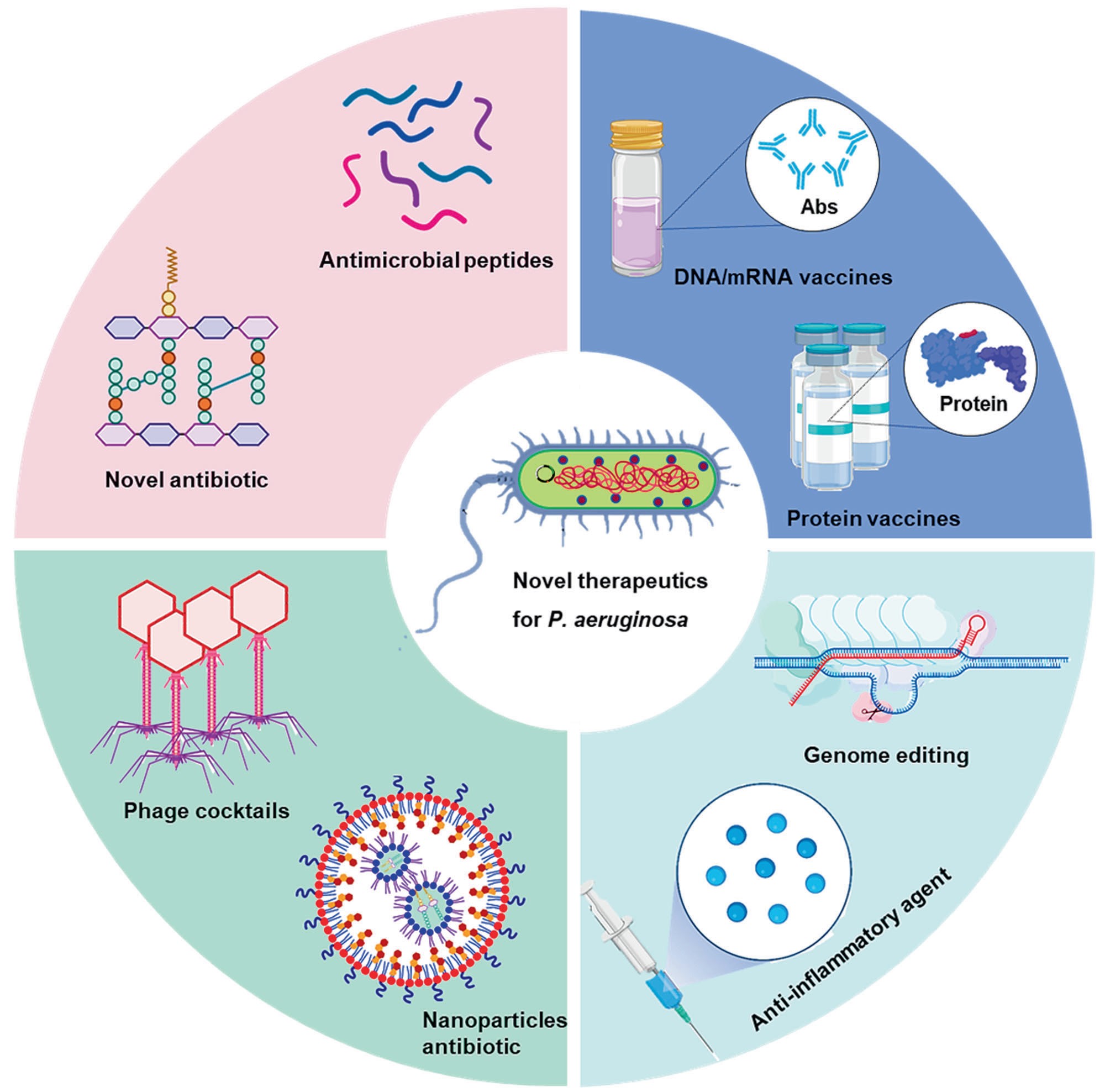Globally, bacterial infections continue to pose a serious health challenge, causing widespread illness and numerous deaths. With the rising antibiotic resistance, this challenge has become more severe, underscoring the urgent need for exploring new treatment options. Against this backdrop, Creative Biolabs has thoroughly reviewed various strategies in bacterial infection treatment, emphasizing the significant recent advancements and ongoing challenges in this field. We are committed to providing comprehensive research and technological services in bacterial infection treatment, aiming to drive progress in this critical medical domain.
 Fig.1 Novel therapeutics for Pseudomonas aeruginosa.1
Fig.1 Novel therapeutics for Pseudomonas aeruginosa.1
Antibiotics have long been the cornerstone of bacterial infection treatment, with drugs like penicillin, cephalosporins, and tetracyclines playing key roles. However, the misuse and overuse of these drugs have led to a surge in antibiotic-resistant strains. The emergence of multi-drug resistant bacteria, such as Methicillin-resistant Staphylococcus aureus (MRSA), poses a significant threat. Addressing this challenge involves monitoring resistance patterns, strict infection control practices, and research into new antibiotics.
Due to the limitations of traditional antibiotics, alternative therapies have garnered attention. These include:
Rapid and accurate diagnosis of bacterial infections is critical for effective treatment. Advances in molecular diagnostics, such as Polymerase Chain Reaction (PCR) and next-generation sequencing, have significantly improved the detection and identification of bacterial pathogens.
Vaccine continues to play a crucial role in preventing bacterial infections. For instance, vaccines against pneumococcus and pertussis have significantly reduced the incidence of these infections. Additionally, vaccines for Haemophilus influenzae type b have greatly reduced invasive diseases in children. Current research is focused on developing more vaccines to cover a broader range of bacteria, including those that are commonly antibiotic-resistant. Scientists are also working to improve the effectiveness of existing vaccines, for example, by enhancing adjuvant formulations or developing combination vaccines to boost immune responses and protection coverage.
The field of bacterial infection treatment is undergoing rapid development and transformation, primarily driven by the urgent need to combat antibiotic resistance. While traditional antibiotics continue to play a vital role in treatment, the continual advancement of alternative therapies and technologies is paving the way for developing more effective and sustainable treatment methods. At this critical juncture, Creative Biolabs is dedicated to providing a comprehensive range of services, including research into infection mechanisms, high-throughput screening, efficacy studies, and production of research-grade bacterial strains. We look forward to collaborating with you to explore and advance the future of bacterial infection treatment. Please feel free to contact us for more information.
Reference: